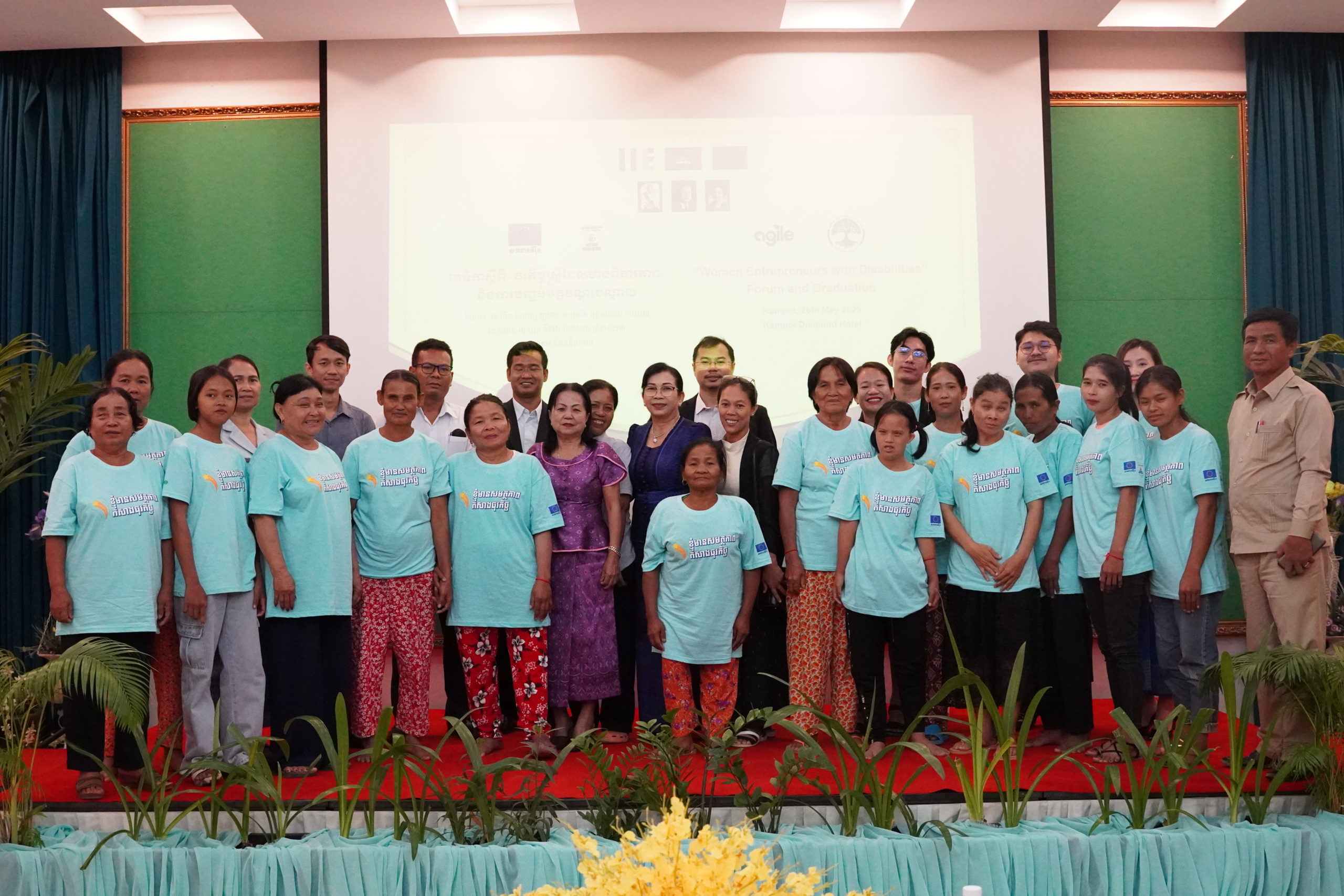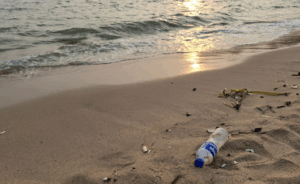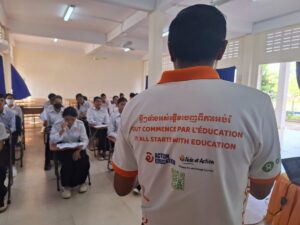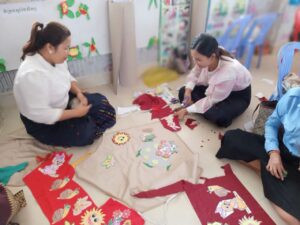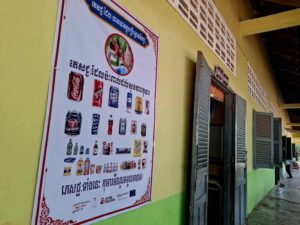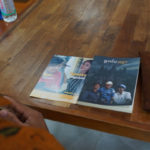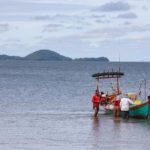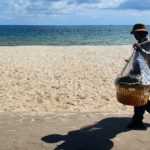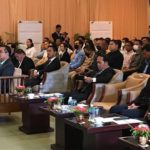A five-week training program has been rolled out in Kampot to equip women entrepreneurs with disabilities grow their home-based businesses.
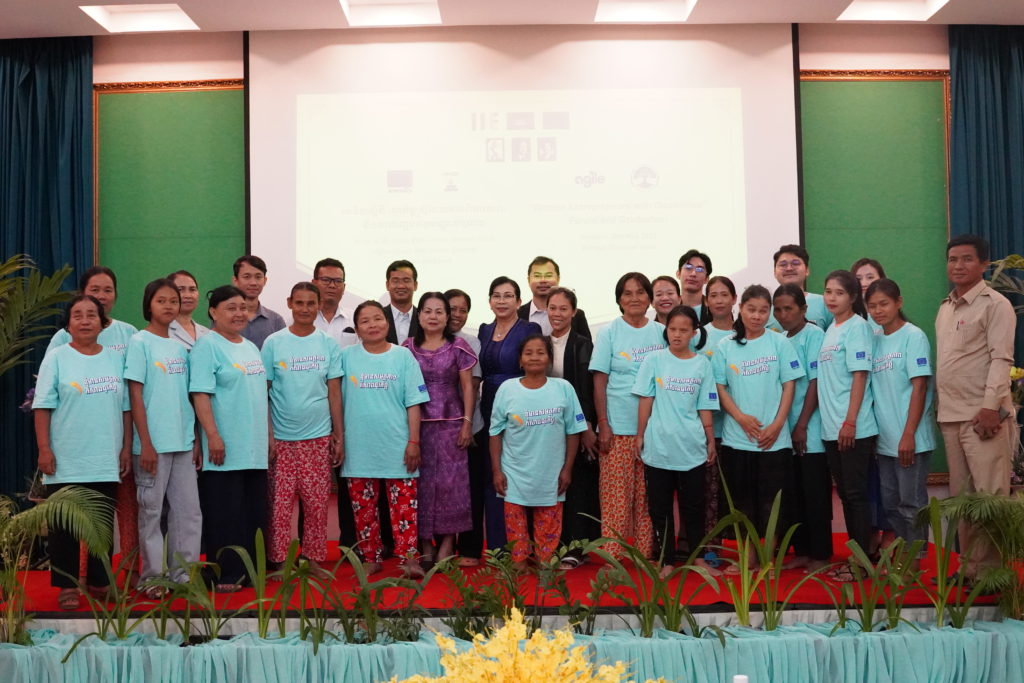
Kampot Province: Women entrepreneurs living with disabilities in Kampot province have gained funds to expand their home-based businesses after completing a five-week training program called the “Coastal Incubator Program for Women Entrepreneurs with Disabilities.”
The program, which was funded by the European Union in Cambodia and implemented by Agile Development Group and Aide et Action Southeast Asia (AEA), helped 12 women in Kompong Trach commune to develop their business plans, learn about marketing and finance, and gain access to mentors and other resources.
One of the women who participated in the program is Sin Topheakdey, a 33-year-old woman who is blind in both eyes. Topheakdey has been raising chickens at home since she was a child. After completing the training program, she decided to expand her business by buying more chickens and ducks. She plans to sell them at the local market.
“After learning from the business training, I want to transform raising chickens from family scale to business scale. The reason that I raise chickens is because I now have sufficient skills,” she told Kiripost during an interview during a visit to the commune.
From Kampot province, she observes that in her community there are not many people raising chickens and ducks on a large scale. Normally villagers breed the chickens and ducks in small amounts for family consumption. Topheakdey hopes to be different from others.
She added, “I noticed that the local market demand prefers to buy rural chickens that feed naturally. Moreover, in my village there is a lack of raising chickens for business since they are only raising chickens on a family scale.”
She spends about $3.64 for an adolescent hen. She is planning to buy 100 rural chickens. She will sell the chickens that weigh from 1 kilogram to 1.5 kilograms, which price at $4.13.
The capital will cost about $291.63 and is estimated to earn about 2 million riels in return, which she is able to save $133.67 per month.
She presented her business plan to the stakeholders to get funds to upscale her home-based small business to a larger scale.
Another woman who participated in the program is Seang Chea, who is disabled in one leg. Chea makes handmade seagrass mats and bags. She has been selling her products at the local market, but she wants to expand her business by selling them online. She is currently working on improving her digital literacy skills so that she can create an online store.
“I want to find more markets for my products [handmade handicrafts] in order to sell them at a higher price. Since my products have good quality, I am looking forward to doing advertisements to other cities and provinces and selling at a better high price,” she said.
Lacking digital literacy is a barrier for her to do marketing through social media.
Ten batches of seagrass costing $17.01 can produce between four to 10 handcrafts. She hopes to buy up to 30 to 40 bigger batches of seagrass to save more expenses and stock to produce more goods.
One basket can sell for $0.72 , which she considers as a very cheap price for this kind of product and a seagrass mat costs $7.29.
Keng Sophal, blind on both sides, lives with her husband feeding the chickens and ducks to support their livelihood. After training for three months she has set her business plan in the next six months to feed a total of 300 chickens and ducks by buying an extra 20 hens and ducks with three roosters, which will cost about $972 in capital.
“Nowadays, I’m feeding 100 chickens and ducks and I want to expand my business to feed 300 chickens and ducks. However, I’m lacking materials such as a cage, nets, chicken and duck feed,” she said.
She added that the funding is important to help enlarge and increase her profit.
One kilogram of hen can be sold at $5.35, 1 kilogram of rooster can be sold at the price of $ 4.37, and one duck can be sold for 22,000 riels, equivalent to $5.35, according to Sophal.
“Women Entrepreneurs with Disabilities” Forum and Graduation aims to present the results of the Incubator program, provide an opportunity for women entrepreneurs with disabilities (WEDs) to showcase their business and/or pitch the business ideas to seek funding, discuss on the barriers and find potential solutions and appropriate mechanisms together with sub-national stakeholders, implementing partners, and women entrepreneurs with disabilities, serve as the graduation ceremony for the coastal incubator trainees
Ket Boravin, the mentor of the workshop, said during the five-week training, women with disabilities have learned about how to know themselves hence strengthening soft skills, business concepts, business marketing, financing management and digital literacy on social media.
After learning, he noticed that his students, started to know more about their business purpose, especially they transformed from shy introverted ladies to be brave enough to speak up about their own business.
In addition, he believes that women entrepreneurs with disabilities are in need of support from various stakeholders, such as family, society and organizations in order to run successful businesses.
Based on their learning [from the workshop] will assist them to be more independent in their daily basis living because whenever they have the abilities and the knowledge of how to run their own business they can do it by themselves without codependent too much on others like they used to.
“This leads to their living conditions being more independent as well since they can earn money by themselves. And this also boosts our country’s economy when more citizens have jobs,” he said.
Sann Ratana, Director of the Department of Welfare for Persons with Disabilities of the Ministry of Social Affairs, Veterans and Youth Rehabilitation (MoSVY), said 5.3 percent of approximately 800,000 Cambodian citizens have disabilities and they play a crucial role in Cambodia society development.
“They are also like other citizens as well, they are working in different fields to support their livelihood. Some work as entrepreneurs, some work in the private and public sector. But we haven’t done any specific research on which field that they are working on the most,” he told Kiripost on Friday.
In Cambodia, according to the Cambodia Socio-Economic Survey 2021 of the National Institute of Statistics of the Ministry of Planning, the disability rate is about 5.3 percent, equivalent to 872,527 people of the total population (47.6 percent female).
He added, “As we can see, most of the people with disabilities rarely get a chance for economic opportunities. This is due to many reasons including education, skills, and economic opportunities. That’s why they are considered as vulnerable people.”
However, the government is in the process of operating the app called “Oakas”, helping disabled people to find jobs by connecting them with factories, enterprises and private companies. It launched in 2020.
According to the Director of the Department of Welfare for Persons with Disabilities of the Ministry of Social Affairs, Veterans and Youth Rehabilitation (MoSVY) the number of companies that have registered in the app are quite low.
In 2022, MoSVY provided a policy to the poor in 60 communities in 25 cities and provinces, with a total of 19,874 people with disabilities and 7,236 people with disabilities receiving 240,000 Riels for 12 months. A total of 7,236 people with disabilities also received 120,000 Riel in six months, with a total budget of 3,901,440,000 Riels (for women with disabilities without data).
The “Coastal Incubator Program for Women Entrepreneurs with Disabilities,” implemented by AEA, is one of a number of initiatives that are being implemented by the European Union in Cambodia to support people with disabilities.
(Article was published on Kiripost / Publication date 31 May 2023)
